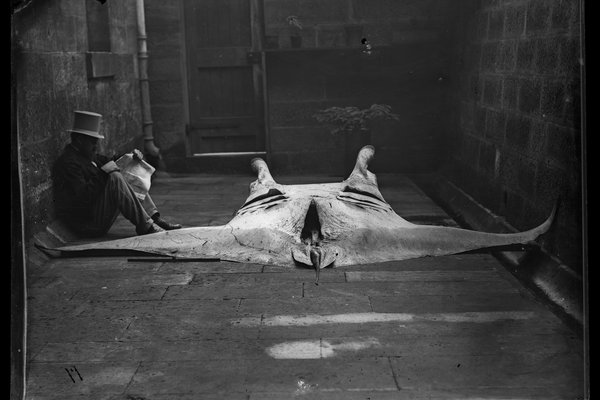Conservationists on the couch
Since COVID-19-related restrictions were announced, DigiVol has been catapulted into a whole new level of activity. Two million transcriptions have been made over the last six months – that is nearly half of all transcriptions completed since DigiVol was launched in 2011!
Within days of COVID-19 restrictions being put in place around Australia, headlines from Australian Geographic read Bored at home? Trawl through Australia’s natural history collections from your couch, while The Sydney Morning Herald was also enthused by citizen science opportunities with their feature story, COVID-19 conservation: Saving endangered species from your couch.

As featured in ABC News, this is an example of a specimen label from the Australian Museum collection which citizen scientists transcribe on DigiVol.
Image: Australian Museum© Australian Museum
So why has DigiVol’s participation and popularity risen so dramatically? Volunteering with DigiVol is a perfect activity during a global pandemic. It can be done from home so long as the volunteer has a computer with internet access. During these past months, people have more time on their hands and volunteering with DigiVol can provide some much-needed structure in the day. Our citizen scientists can join expeditions, make valuable contributes to science and travel the world without leaving their homes.
With museums closed or with limited access all around the world, there are many displaced volunteers looking for online alternatives. Prior to COVID-19 restrictions, our own DigiVol Lab volunteers came into the Australian Museum each week to take images of our collections to post on DigiVol for transcribing; now, many have turned their hand to volunteering online for DigiVol instead. Many volunteer agencies during this time have approached DigiVol, as they have had to find suitable activities for volunteers.

A DigiVol volunteer, in the DigiVol Lab imaging a specimen in pre-COVID-19 times.
Image: Rhiannon Stephens© Australian Museum
Similarly many institutions both existing and new to DigiVol, unable to perform their usual duties, were able to set up new DigiVol expeditions while working from home (DigiVol is used by many institutions around the world such as Kew Gardens and the New York Botanical Gardens to digitise their collections). Subsequently, the DigiVol platform featured more than twice the usual number of expeditions, providing a fantastic variety of “virtual expeditions” for citizen scientists around the world to join.
The recent media attention has sparked further interest; nearly 3,000 volunteers have joined DigiVol since lockdown, bringing our total DigiVol community to more than 8,000. On occasion, we have more than 90 citizen scientists working online concurrently, whereas prior to COVID-19 the maximum number of users at any time was around 30. The highest number of transcriptions in a single month occurred in June, with more than 500,000 being completed!

Many Wildlife Spotter expeditions were set up in response to the devastating Australian bushfires of summer 2019-20.
Image: @harrisonwarnephotography© Harrison Warne
Also contributing to the surge in activity is an increase in DigiVol’s Wildlife Spotter expeditions which are quick and highly compelling. Many of these camera trap expeditions were set up in response to the devastating 2019-20 summer bushfires that impacted Australia’s biodiversity on a scale not previously seen since record-keeping began in the mid-1800s. Following the fires, many people wanted to know how they could help. DigiVol’s Wildlife Spotter expeditions have enabled citizen scientists from around the world to review thousands of camera trap images deployed post-fire to monitor species survival and recovery.
While COVID-19 lockdowns continue to have a devastating impact around the world, DigiVol is one of the success stories of this challenging time.
Danielle Northey, Digital Collections and Citizen Science, Australian Museum Research Institute
Additional information
DigiVol was developed by the Australian Museum in collaboration with the Atlas of Living Australia to help it and other institutions worldwide digitise and analyse their collections, by combining the efforts of many volunteers, known as citizen scientists.
References
The Conversation, August 14 2020. From Kangaroo Island to Mallacoota, citizen scientists proved vital to Australia’s bushfire recovery.
ABC News, August 15 2020. Australian Museum crowdsourcing website DigiVol sees spike in volunteers during COVID-19.
Sydney Morning Herald, June 20 2020. COVID-19 conservation: Saving endangered species from your couch.
Australian Geographic, March 18 2020. Bored at home? Trawl through Australia’s natural history collections from your couch.













